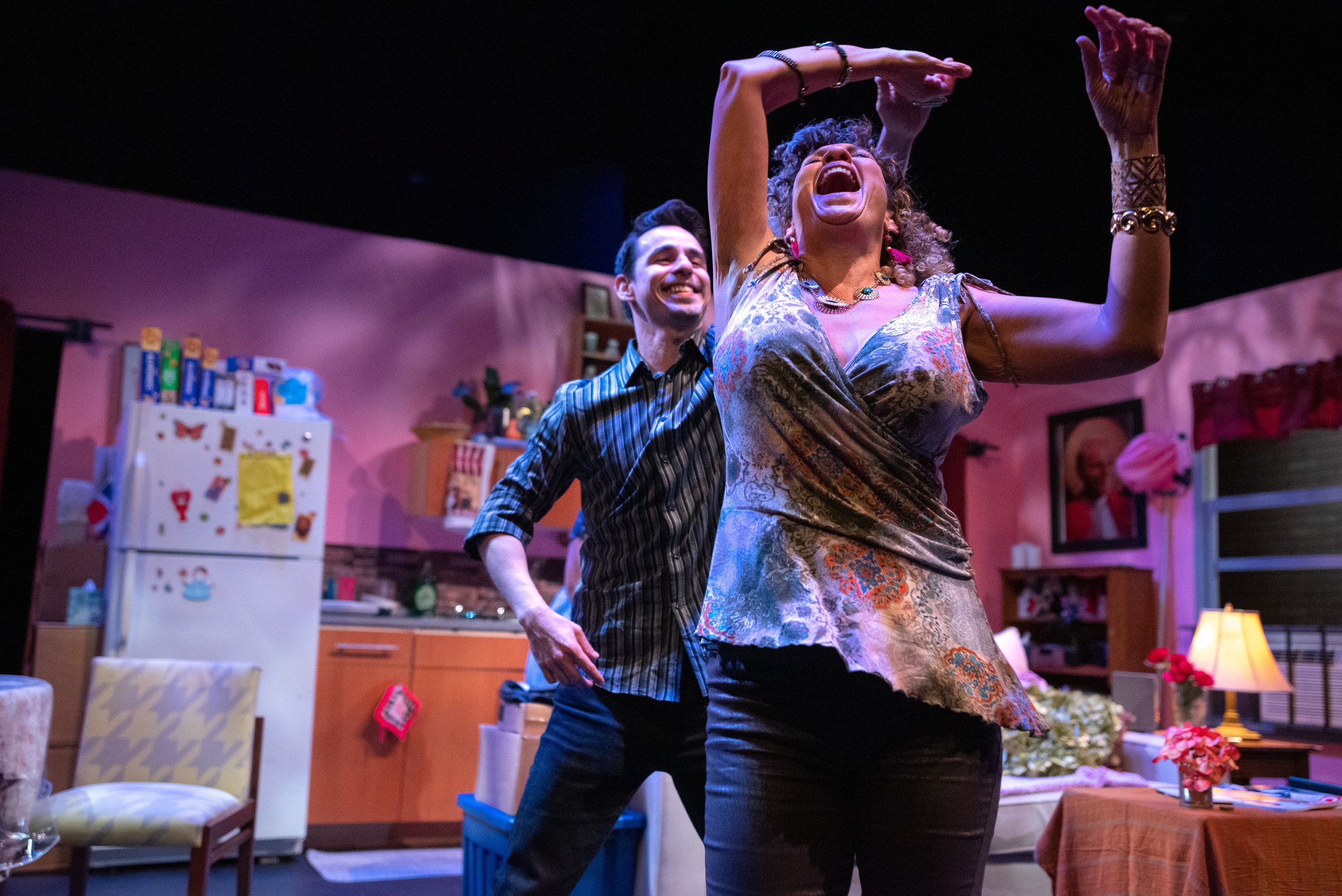Interview with Marco Antonio Rodriguez (Ashes of Light @ Teatro Dallas)
—Interviewed by Levi Brignon
Teatro Dallas’ production of Marco Antonio Rodriguez’ play Ashes of Light (directed by Victoria Pérez) plays through November 12th at The Latino Cultural Center in Dallas. Teatro Dallas lays out the core of the play as: “After a self-imposed five-year absence, a man returns home to attend his father’s funeral. Over the course of two evenings, mother and son, two estranged generations of Dominicans on the Upper West Side of Manhattan attempt to rekindle the love and appreciation for each other and their roots; but unexpectedly reveal intimate and taboo secrets that threaten to destroy an already thin bond.”
The following is Levi Brignon’s (lightly edited) interview with playwright Rodriguez, a graduate of SMU’s theatre program whose plays have been produced in New York, Buenos Aires, in the Dominican Republic, and across the country….
LEVI BRIGNON: Considering the material of this play, do you have any advice to actors and or directors who are starting out and working with this type of script?
MARCO ANTONIO RODRIGUEZ: Actors and directors should trust the text, truth and reality of the world of the play. It is easy to jump into caricature/archetypes (for actors) and to label this piece with terms such as "kitchen drama." I feel this demeans it. Lowers its value. Takes away from what it actually is: a domestic, family drama-comedy in the same vein as Tennessee Williams, Henrik Ibsen and Anton Chekov who are playwrights who inspired me, therefore inspire how I write. Those playwrights wrote domestic, family comedy-dramas and no one ever labeled them as "kitchen dramas."
If you are Caribbean or even if you are familiar with the Caribbean experience DO NOT assume you got this all figured out just because the language may feel familiar and mirror your own experience. Detailed table (script) work, character development, text analysis, beat work and even dialect work are crucial to a successful production of a play such as Ashes of Light. Treat it just the same as if you were working on a Tennessee Williams or Chekhov piece.
We are working for the stage and there are many things that must be taken into account when bringing the Caribbean and Caribbean-American experience to the forefront such as: slightly slowing down our speech patterns (in the Dominican Republic we tend to speak very fast in both Spanish and English) and/or accentuating words/colloquialisms so that an unfamiliar ear is able to at least pick up some part of its meaning even if just in energy.
DO NOT JUDGE these characters!
Don't approach the piece with terms such as: "She's a lunatic," "he's just a brat," or "this is a dysfunctional family." We must remember these are human beings. They just happen to be Dominican-American, but this family is many families. Find the complexities of the universal through the specific text work that must be done. What do these characters want from each other and how are they going about getting it? What tactics are they using and when do these shift?
Don't push or overdo the comedic moments of the play. Find the human truth (and even the pain) of those comedic moments and let the comedy flow organically. No need to indicate, push or punch up the comedic moments if they are organic and truthful.
Finally... Keep the work honest, truthful and grounded in the human experience.”
BRIGNON: With Latinx playwrights (seemingly) gaining more opportunities in the States, what has changed with your journey from when you were first writing this play—from then to now?
RODRIGUEZ: It is still a hustle, and the "gatekeepers" continue to make access a challenge as companies promote "inclusion initiatives" on social media posts and general marketing materials. Yet many Latinx playwrights are still left with only development time and possibly a public staged reading of their work. We need theaters to truly commit to actual full productions of Latinx work, and to remember we are not a monolith. We are a part of many diverse, rich cultures from around the world with an abundance of stories to share. It seems after all this time we are still a bit stuck in the same narratives and when that rare Latinx play happens to make it onto a mainstream stage, more often than not it is the same stereotypes being displayed, except they now hide behind the guise of "inclusion."
By the nature of ever-expanding technology, Latinx writers currently have more access to opportunities and resources than before. But what good is it if it's just a front for companies to check off a to-do-list in order to show good face for future grants and/or corporate sponsors? It needs to be about GENUINE access and inclusion that goes beyond development time and one-night staged readings—an across-the-board, nationwide commitment and execution of full productions (with a full run) of work written by a diverse pool of Latinx writers. No more talking or pontificating about it on social media, marketing materials, conferences or symposiums. Show with direct action on your mainstage (not second stage. MAINSTAGE), full season announcements. Honor the work with the same production and marketing budgets allowed to the other productions and add additional outreach components that have the potential to build and bring in a whole new audience into the fold.

